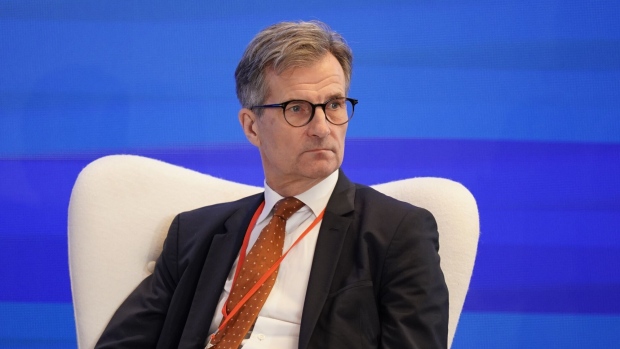Dec 5, 2023
Riksbank Governor Says Crime Could Cause Long-Term Economic Hit
, Bloomberg News

(Bloomberg) -- Sweden’s gun-crime epidemic could be a long-term threat to the Nordic nation’s prosperity, Riksbank Governor Erik Thedeen said, joining the business leaders concerned about gang violence that has shaken the country in recent years.
“This is not something that we include in our forecasts, but if it should persist for a long time it may threaten the trust that is one of the main reasons for Sweden’s economic success,” Thedeen said after speaking at an event in Stockholm organized by state-owned lender SBAB. “It is definitely a worrying trend, also from an economic perspective in the longer term.”
Sweden has suffered a rise in gun violence that is unparalleled in Europe, with police reporting 52 fatal shootings so far this year in the country of 10.5 million. The development has been met with initiatives to expand the police force and introduce stricter sentencing and led to calls for deploying the military to help quell violence.
Read More: Sweden’s Crime Wave Sparks Nationalist Call for Army on Streets
While the economic consequences of the development remain limited for now, business leaders have warned that the violence could tarnish Sweden’s standing in the world and make it harder to attract key competence to the export-dependent nation.
“I also read the newspapers and am trying to understand what implications this may have,” the governor said. “But at the moment, this horrible criminal activity mainly causes human suffering.”
As Swedish households have a high share of loans with rates fixed on short terms, Thedeen is facing a difficult dilemma as he seeks to rein in inflation without doing too much damage to the economy. While the central bank has prioritized keeping a lid on prices, with eight consecutive rate increases, it decided to keep its benchmark rate unchanged at 4% last month, replicating a strategy adopted by peers in the US and the euro area.
Read More: Riksbank Shirks From Rate Hike as Swedish Economy Stumbles
Thedeen is still keeping the door open to another hike in the beginning of next year, and the bank’s forward guidance indicates about a 40% probability of that move, according to the governor. The Riksbank’s latest inflation forecasts show that the CPIF-measure it targets will fall below 2% by next summer, yet Thedeen said he won’t relax until an underlying gauge that strips out energy costs declines in a sustained way.
“We are not done just because CPIF falls to 2% - we need to see a development where the spread between those measures tightens and they stabilize at 2%,” Thedeen said.
©2023 Bloomberg L.P.








